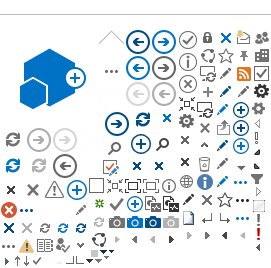By Travis Moedl
If you're a female innovator and want your idea or invention out in the world for everyone to see, what do you do? How do you make it happen? According to Mary Juhas, associate vice president in the Office of Research at the Ohio State University, one of the most important factors in getting an idea visible is having the confidence and vision to make it happen. "If you can't see it, you can't be it," said Juhas. "You must have the confidence to believe your ideas can have a positive impact on society and have the vision to take down any barriers that stand in your way."
Juhas is the leader of the ADVANCE program at Ohio State, designed to increase the participation and advancement of women in academic science and engineering careers with a focus on building research leaders. Most current STEM leaders are male, which Juhas is hoping changes as a result of the work she's doing with ADVANCE. "Women face a number of hurdles when it comes to innovations in the STEM field," said Juhas. "It is crucial that we keep women involved."
As the ADVANCE leader, she directs "REACH for Commercialization," a workshop series for women faculty inventors. The REACH program engages cohorts of inventors who share the same vision of amplifying their research impact by moving ideas to the market.
Part of commercializing research involves obtaining patents and filing invention disclosure records, a first step in the patenting process. However, according to a paper from the Institute for Women's Policy Research published in July 2016, "…women hold an extremely small share of patents…at the current rate of progress, gender equity is more than 75 years away." Records indicate that of all patents approved in the United States by 2010, women have a share in only18 percent of them.
The REACH workshops tackle some of the key stages of commercialization, and address subjects such as brainstorming their research's impact on society, learning the research and commercialization landscape, and understanding how to build a team of key partners with similar goals. Workshops are scheduled during work hours to maximize efficiency due to the limited time commitments that women often face, such as family or committee commitments. In addition to being a great way to meet new collaborators, they provide friendly, individual coaching and professional development opportunities.
The program aims to change the mindset of women, and urges them to bring their research to market. "Women tend to think everything has to be perfect," added Juhas. "Since most women generally don't like the idea of self-promotion, REACH is designed to give these women the confidence to encourage and share new ideas."
Part of her answer to this problem was establishing an Entrepreneur-in-Residence program. Through this program, Juhas has hired an entrepreneur who provides participants with expertise about all aspects of the commercialization process, and a personalized follow-up with each participant. The program connects participants to each other and to an innovation ecosystem, and most importantly, builds the confidence of the women taking part.
The REACH program has significantly increased the numbers of invention disclosures submitted and patent applications filed by women, nearly doubling from 88 to 173.
The program has been particularly effective in shifting the thinking of researchers toward commercialization as an alternative to publication as a measure of success. According to Juhas, however, both should be attainable. "Commercialization helps people better visualize their vision," said Juhas. "You can obtain a patent and still be able to publish the article in a prestigious high-impact journal in order to get it more recognized."
The idea of furthering the research careers of women makes Juhas extremely proud. "REACH has a lot of my soul in it," she said. "I just enjoy being able to build stronger women research leaders. It gives me a sense of joy knowing that I've left a place better than when I found it."
What advice does Juhas believe is important for future female leaders wanting to pursue a career in the STEM field? "Stay involved," she said. "Spend more time creating networks and engaging with other women...It's not easy to do. But if we work together on a shared vision, it could be!"
|


